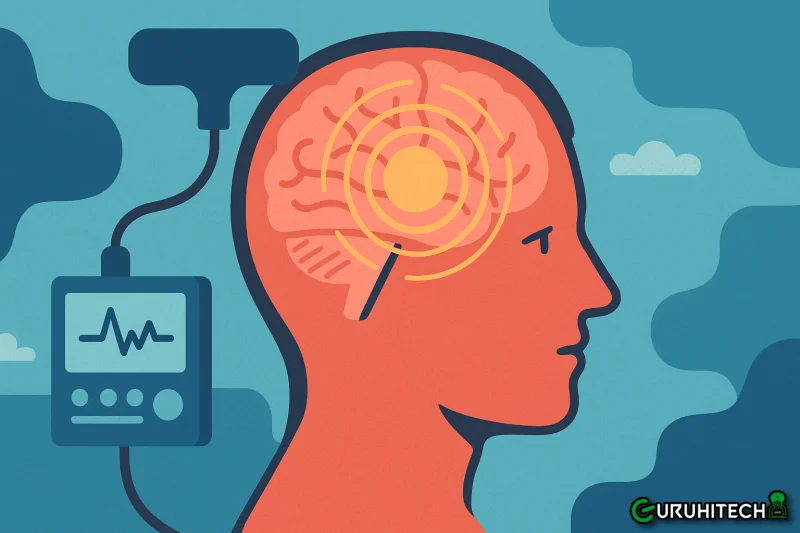How New Brain-Focused Treatments Are Changing Mental Health Care for Adults Who Haven’t Found Relief

A lot of adults reach a point where their usual mental health treatments stop moving the needle. They may have gone to therapy for years and tried different medications that helped a little but never fully resolved the symptoms. Some people learn to get through their days well enough, but it still feels like there’s a layer of fog or tension sitting under everything they do.
It’s not a lack of effort. It’s not a personal flaw. Many long-term symptoms are tied to how the brain processes mood, stress and memory. When those systems fall into rigid patterns, traditional treatments sometimes aren’t enough to shift them. This is where neuroscience-driven approaches are starting to fill a long-standing gap.
Clinics such as Neuroplasticity MD focus on this newer direction in care, and the change is giving many adults a way forward. Especially those who never felt fully understood in earlier treatment attempts.
Why Standard Depression and Anxiety Treatments Don’t Work for Everyone
Many mental health conditions share symptoms, but they don’t always share causes. Two people with depression can have completely different internal experiences. One may deal with constant irritability and mental fatigue. Another may feel a deep heaviness or emotional detachment. Under the surface, their brains may be following very different patterns.
Most first-line treatments focus on broad symptom reduction, and they work well for many people. But when symptoms have lasted for years or were triggered by trauma, the underlying circuits can become extremely stable. Almost too stable. The brain repeats its old responses, even when the situation has changed.
This is why modern treatment is shifting. Instead of trying the same set of strategies again and again, newer therapies work directly with the neural systems involved in mood and emotional processing.
How Ketamine Therapy Creates an Opening for Change
One of the treatments gaining attention is ketamine therapy. It affects the brain in a different way from traditional antidepressants, which is why the results often feel different as well. Ketamine influences glutamate activity, which plays a major role in mood and how the brain forms new connections.
People don’t suddenly wake up feeling “fixed.” That isn’t how it works. What many describe is a loosening of the stuck feeling. Thoughts feel less heavy. Emotions feel less compressed. They report a sense that the constant mental pressure has eased, even if the larger work still lies ahead.
This is why it pairs well with therapy or structured support. When the mind opens up even slightly, people can actually engage with strategies that were inaccessible before. The brain becomes more flexible, and flexibility makes progress possible.
Why PTSD Treatment Needs a Different Approach
PTSD creates a unique set of challenges. The nervous system stays alert even without a threat. Sleep can be difficult. Everyday stressors hit harder than expected. Standard talk therapy helps many people understand their symptoms, but it doesn’t always calm the physical response.
Modern PTSD treatment aims to reach the areas of the brain that keep the alarm system active. These methods help reduce the intensity of fear responses and quiet the automatic reactions that make daily life exhausting. Over time, the body begins to break its habit of being on guard.
People usually notice small changes first. Feeling less tense in public, recovering faster after a trigger, or sleeping more consistently. These small shifts lay the groundwork for bigger improvements.
Why Strong Evaluations Shape Better Outcomes
A thorough evaluation can change the entire direction of treatment. Many adults live with overlapping symptoms without knowing it. Anxiety may look like ADHD. Trauma may look like depression. Sleep issues may create emotional symptoms that appear unrelated.
When clinicians take the time to map everything (mood, energy, memory, thought patterns, physical responses, past treatments) it becomes clearer which interventions will actually help. People often feel relieved when they understand the “why” behind what they’ve been experiencing.
This clarity also prevents people from repeating treatments that never worked for them in the first place.
A More Integrated Way of Supporting Long-Term Symptoms
New mental-health strategies don’t rely on one tool. They blend different approaches so the benefits build on each other. A person might receive medication support, targeted therapy, and a neuroscience-based intervention in one plan. Each part works on a different piece of the puzzle.
This type of integrated care tends to be more flexible. It adapts to changes in someone’s life rather than staying static. It helps people stay steady during stress, rather than losing progress when life gets difficult.
Conclusion
Mental health care is evolving in a meaningful way. The field is moving toward treatments that understand how the brain actually works. Not just how symptoms appear on the surface. For adults who have tried traditional methods without real change, these new approaches offer a sense of direction and a chance to rebuild confidence.
The brain isn’t fixed. It can learn, adapt, and regain balance with the right support. With treatments that target deeper pathways, many people are finding the relief they thought they would never experience.
Those wanting to read more about how these treatments work can learn more through credible mental-health resources that offer clear, science-based explanations.
Ti potrebbe interessare:
Segui guruhitech su:
- Google News: bit.ly/gurugooglenews
- Telegram: t.me/guruhitech
- X (Twitter): x.com/guruhitech1
- Bluesky: bsky.app/profile/guruhitech.bsky.social
- GETTR: gettr.com/user/guruhitech
- Rumble: rumble.com/user/guruhitech
- VKontakte: vk.com/guruhitech
- MeWe: mewe.com/i/guruhitech
- Skype: live:.cid.d4cf3836b772da8a
- WhatsApp: bit.ly/whatsappguruhitech
Esprimi il tuo parere!
Ti è stato utile questo articolo? Lascia un commento nell’apposita sezione che trovi più in basso e se ti va, iscriviti alla newsletter.
Per qualsiasi domanda, informazione o assistenza nel mondo della tecnologia, puoi inviare una email all’indirizzo [email protected].
Scopri di più da GuruHiTech
Abbonati per ricevere gli ultimi articoli inviati alla tua e-mail.
